- Home
- Kelley Armstrong
Alone in the Wild
Alone in the Wild Read online
Begin Reading
Table of Contents
About the Author
Copyright Page
Thank you for buying this
St. Martin’s Press ebook.
To receive special offers, bonus content,
and info on new releases and other great reads,
sign up for our newsletters.
Or visit us online at
us.macmillan.com/newslettersignup
For email updates on the author, click here.
The author and publisher have provided this e-book to you for your personal use only. You may not make this e-book publicly available in any way. Copyright infringement is against the law. If you believe the copy of this e-book you are reading infringes on the author’s copyright, please notify the publisher at: us.macmillanusa.com/piracy.
For Jeff
ONE
I wake buried under a hundred and forty pounds of dog. Storm knows she’s not allowed on the bed, so I lie there, brain slowly churning, until I remember I’m not in bed. I’m on the ground. Cold, hard winter ground—the floor of a tent that is definitely not big enough for two adults and a Newfoundland dog. Which tells me one adult is gone.
I lift my head. Sure enough, there’s no sign of Dalton. I peer at the glow of sunrise seeping through the canvas. I’ve slept in. It’s December in the Yukon, when dawn means it’s about … I lift my watch. Yep, 10 A.M.
I groan. Storm echoes it as she tries to stand, an impossible feat within the confines of this tent.
“Where’s Eric?” I ask.
Shockingly, the dog doesn’t answer. I blink back the fog of a night that started with tequila and ended with … Well, it ended strenuously enough to explain why I’m still in bed at ten, though apparently my partner had no trouble rising early.
We’d left Storm outside last night. That wasn’t cruel. It’s hovering around the freezing mark, positively balmy for this time of year. Storm has her thick coat and her companion, a wolf-dog named Raoul. We’d brought them on our weekend getaway both for company and for training, Storm as a tracker and Raoul as hunter. Raoul’s master doesn’t hunt. Not animals, at least.
If Storm is in the tent with the flap closed, that means Dalton let her in. It also means he’s taken Raoul. I rub my eyes and spot a note pinned to the tent flap.
When I push Storm, she grunts and shifts enough for me to scrabble over her and pluck off the note.
Hunting. Back for lunch. Coffee in thermos. Don’t wander.
The note is the model of reticent efficiency, and I would say that fits our sheriff to a tee, but I’ve also read his near-poetic academic and philosophical musings, ones that shouldn’t come from anyone without a Ph.D., much less a guy with zero formal schooling. That is also our sheriff. Two sides to the same coin. Only I get to see the second one.
I find not only coffee but breakfast in a dog-proof pouch at the end of the bed. Scrambled eggs with venison sausage, and bannock with … I lift the hard bread, still warm from the fire, oozing gooey brown dots. Bannock with chocolate chips. I laugh and take a bite. I won’t say I’m a bannock fan, but chocolate makes everything better.
I happily munch the bannock and wash it down with coffee. I don’t toss any scraps to Storm. Honestly, at her size, she’d never even taste them. Instead, she gets one of my sausages. As for the “don’t wander” part of Dalton’s note, I’m interpreting that as a suggestion rather than the imperative it seems. Oh, naturally he hopes I’ll take it as a command, but he knows better than to expect that. He means for me to stay close, and I will. I’m not about to stay in the tent for two more hours, though.
When I finish breakfast, I open the flap, and Storm clambers out to romp in the snow. She’s fourteen months old, which means she’s outwardly a full-grown dog, but inside she’s still a pup. At thirty-two, I understand the feeling. Or, I should say, I’ve regained the feeling after sixteen months in Rockton. Before that, while I remember a girl endlessly on the move, endlessly into mischief, that girl vanished when I was eighteen, shoved into hiding by the kind of mistake that banishes one’s carefree inner child. Out here, I’ve found her again … at least, when I’m not on duty as Detective Casey Butler.
Dalton and I are on vacation, which means we’re taking an entire two days off. Down south, we’d call that a weekend. Up here, with a police force of three, we take time off where we can find it.
Things have been slow in Rockton. The holidays are approaching, and it’s as if people decided to cut us slack as a seasonal gift. No assaults. No robberies. No murders. In a town of under two hundred people, the last should be obvious, but this is Rockton. Murder capital of the world, someone used to say. That someone knew exactly what she was talking about, having turned out to be a killer herself.
Rockton is special. For better or worse. Mostly better, but the crime rate is one of those “worse” parts. We can’t expect otherwise, really. We are a town of fugitives. Everyone here is running from something. Some are victims, on the run from ex-partners, stalkers, anyone who might want them dead through no fault of their own. This is the true purpose of Rockton—a refuge for those fleeing persecution. It’s also home to white-collar criminals, whose misdeeds pay our bills. Then there are those whose mistakes—often violent ones—brought them to Rockton under expensively bought cover stories given even to Dalton. So it’s no surprise that we have a murder rate.
For now, it’s quiet, and has been for six months. Which means Dalton and I can take an actual weekend off.
Storm and I play in the snow for about an hour before I realize that I should have stoked the fire first. While Dalton had left it blazing for me, he’s obviously been gone awhile, and by the time Storm and I collapse, exhausted, the fire is down to embers. I add another log, but it’s not going to take. We need kindling.
That’s life up here. Constant work just to survive. Heat doesn’t come at the flick of a switch. Food isn’t the nearest fast-food joint away. Water isn’t a simple matter of turning on a faucet. In Rockton, we simulate modern living as best we can—there are restaurants in town, and water does come from taps through a pump system—but everyone needs to work to put food in that grocery, to fill the water tanks when the stream runs low. One quickly develops a healthy respect for our pioneer ancestors.
Storm and I head out to gather kindling. Soon, though, I realize that new-fallen snow is going to complicate the task. Even if I unearth sticks, they won’t be dry. That’s fine—the best source of winter kindling is dead trees. I’m maybe a few hundred feet from the camp when I find a brown-needled pine that’s been crowded out by sturdier siblings.
I start breaking off twigs. Storm dances about, her second wind gale-force strong. When I throw a stick, she chases it, only to notice I’m still snapping off branches. She shoots me a sullen scowl.
“I’m not Eric,” I say. “I play fetch properly.”
More scowling. Then she flings herself to the ground with a flounce and a sigh.
“Fine,” I say with a laugh. “Once and only once.”
I take another branch and hold it over my head. She stays where she is, watching me, refusing to fall for this again. I throw it, and she doesn’t move until I take off after the branch. Then she bolts up and runs for it.
I’m one pace ahead, Storm right on my heels. She veers to pass me, and I throw myself down in a home-plate slide. I grab the stick, flip onto my back, and fist-pump it in the air … giving me two seconds of victory before I have a Newfoundland on my face for the second time this morning.
Sputtering and laughing, I shove her off. Then, punctuating my own noise, I hear something that makes me go still. Storm lumbers off with the stick as I rise slowly, listening.
It wasn’t what it sounded l
ike. Couldn’t be.
The noise comes again, a plaintive wail, like a baby’s cry.
Storm catches it. She stops and pivots, ears perking. She glances at me as if to say, What is that?
“I don’t know,” I answer, as much for myself.
The morning has gone quiet again, and I’m straining to listen and figure out what it really was. I mentally run through my list of “animals that aren’t hibernating right now.” I’ve heard a similar sound from a bear cub, but it’s the wrong season for that. We have cougars—a female who wandered north of their usual territory and now has grown cubs. The cry didn’t sound right for a big cat. Not a wolf or a feral dog, either.
Bird? That seems most likely, and I’ve decided that must have been what it was when the noise comes again, and it is not like a bird at all.
A fox? They make some truly bloodcurdling sounds. There’s a vixen who lives near our house in Rockton, and I’ve heard her scream and bolted upright, certain someone was being murdered horribly right outside our window.
I’m still standing there pondering when I catch a glimpse of running black fur and realize it’s my dog.
“Storm!” I shout as I bolt after her.
She stops, and I exhale in relief. This spring, I had to shoot a young cougar she chased. Thus ensued six months of special training to be sure no wild animal would ever lead her off again.
I jog to catch up.
“We’ll go check it out,” I say, and she may not understand the words, but I only need to take a step toward the sound for her to bark with joy.
I motion for her to heel, and she does. Dalton and I have spent countless hours training her, and it’s paid off. She’s not only blossoming into a first-rate tracker, but she’s more obedient than I’d dared hope. That’s a necessity when your dog is bigger than you.
Storm stays at my side. When a tree prevents that, she falls behind me, as she’s been taught.
The wail comes again. It’s weak enough that if the forest weren’t winter-quiet, I’d miss it. It sounds so much like a baby that I have to pause and ask myself “Why couldn’t it be?”
There are people living out here besides us. Rockton has been around since the fifties, and over the years, residents have relocated into the wilderness for various reasons. Their term ran out in Rockton, and they didn’t want to go home. Or they disagreed with the politics—as the town became less an asylum for the innocent and more a pay-to-play escape for the desperate—but they still needed the refuge of the forest. Most of these are what we call settlers. True pioneers of the north, some in communities and some living independently, as Dalton’s parents did. Then there are the hostiles, and that is … a complicated subject that becomes more complicated the longer I’m here and the deeper I dig.
When I arrived, I was told that hostiles were residents who’d left and reverted to something primitive and dangerous. I’m no longer convinced that all of them chose that reversion. But that’s a topic for another time. What matters now is that people do live out here, so I might very well be hearing a human infant.
I slow to a walk, straining for the sounds of others. If I hear any, I will retreat posthaste. Even settlers can be aggressive if we wander into their campsites.
Yet I hear only the occasional cry of what, increasingly, I can’t imagine as anything except a baby. Then Storm whines. I glance down at her, and she stops. Parks her butt in the snow and gives me a look that asks if we must continue. She follows it with a glance over her shoulder, in the direction of our camp, in case I don’t understand what she wants.
She senses danger ahead. No, I suppose that’s melodramatic. To be precise, she smells strangers, and she has learned, unfortunately, that not all strangers are kind. Something in the scent of whatever lies ahead worries her.
I motion for her to sit and stay, and she glowers at me. With a grunt, she lifts and then lowers her hindquarters. I’m as trained in Storm’s language as she is in mine, and this odd movement tells me that she will sit and stay, but she’d rather come with me.
I hesitate. I’ve learned the hard way that my dog might be the most valuable commodity I own out here. Never mind how well she’s trained; one look at her size gets a settler’s mind turning, considering how she could be used, as protection or as a beast of burden.
Taking her with me is a risk. So is leaving her here, commanded to stay, prey for any human or beast who happens upon her.
I nod and motion for her to stay behind me. She doesn’t like that but communicates her disapproval only with a chuff. Then she’s right on my heels.
After another half dozen steps, there is no doubt that I am hearing a baby. The weak and plaintive cry comes from right in front of me. Yet I see nothing.
I blink hard. I’m in an open area scattered with saplings, not big enough to hide someone clutching a child. The cry comes from right in the middle of an empty clearing, where I see nothing.
Storm whines. When I motion for her to stay behind me, she whines louder, taking on a note of irritation now. She’s asking nicely, but she really, really wants the release command. I won’t give it. This could be a trap, someone …
Someone what? Hiding a recording of a crying child under the snow?
Under the …
I tear into the clearing. The heap ahead looks like a buried log, and it’s too large to be a baby, but that’s definitely where the sound comes from. As I run, the snow deepens, with no tree canopy to block it, and I’m staggering forward in snow to my knees. I plow through, and I’m almost at the heap when my leg strikes something, and I stumble. In righting myself, I uncover a boot.
In two more steps, I’m beside the heap. The cries have stopped, and my heart stops with them. I claw at the snow. My fingers hit fabric. A woman’s body. I can see that in a glance, and again, I don’t stop for a better look. She is still and she is cold, and I cannot help her.
I keep digging, but there’s just the woman, and for a horrible moment, I imagine the baby trapped beneath her. Then, at a whimper, I realize the sound comes from under her jacket. I tear at it, the fabric frozen and stiff.
Blood. I see blood under the snow. I wrestle the jacket open, and there is the baby, clutched to the dead woman’s chest.
TWO
I yank the child free so fast that the momentum knocks me backward. I land on Storm, and my arms reflexively tighten around the baby.
Crushing it.
No, no, no …
I struggle upright as I loosen my grip … so much I almost drop the baby. I squeeze my eyes shut and shudder. I’m not easily rattled. I’ve hung off a cliff, fingers slipping, and only thought Damn, this isn’t good. But here I am freaked out. I know nothing about babies—nothing—and I’ve just dug one out from under the snow, from the arms of the child’s dead mother, and … and …
Focus, damn it! Focus!
Deep hyperventilating breaths. Then I gasp. I’m holding a baby that has been exposed to subzero temperatures. Buried under the snow with its dead mother. There is no time to catch my breath.
Clutching the baby, I look around. I spot the nearest object—a fallen tree. I race over, sit, make as much of a lap as I can, and settle the baby on it.
Baby. It’s a baby. Not a toddler. Not even a child old enough to crawl. This is an infant so tiny …
I suck in a breath. Focus, focus, focus.
It’s so small. I don’t have nieces or nephews. Don’t have close friends with children. I cannot even guess how young this baby might be. I only know that it is tiny and it is fragile, and for once in my life, I feel huge. Massive and clumsy. Even with my gloves off, my fingers fumble with the swaddling.
I’m not sure what “swaddling” should look like, but it’s the word that pops to mind. The baby has been wrapped tight in a cocooning cloth. Animal hide, tanned to butter softness.
As I’m unwrapping the baby, I stop. It’s freezing out here, and I’m unwrapping it? But I have to, don’t I? To check for frostbite? Warm it up?
; The panic surges on a wave of indecision. Run the baby back to our tent and unwrap it there. No, unwrap it here, quickly, and make sure it’s fine.
The baby makes a noise, too weak now to be called a cry. The child’s eyes are screwed shut. They haven’t opened since I picked it up.
A bitter wind whips past, and I instinctively clutch the baby to my chest. That wind—and my reaction—answer my question. Get to the tent, to shelter. It’s only a few hundred feet away.
I open my jacket, and as I do, I curse myself for being a spoiled brat. Last winter, I’d fumbled around in oversize outerwear, and I’d grumbled about it, and the next time Dalton did a supply run, he returned with a new jacket and snowsuit for me. Naturally, he bought me a sleek, down-filled parka that fits perfectly, meaning I have to hold the baby against my sweater, jacket stretched only partway across. A quick second thought, and I turn my coat around, leaving an air pocket at the top.
The whole time I’m fussing, Storm whines, which only fuels my panic. Her anxiety feels like a lack of trust. That’s only me projecting, but I snap at her to be quiet. Guilt surges as she ducks her head, and I pat it quickly, murmuring an apology, knowing this is what she really wants: reassurance. I’m freaking out, and that’s freaking her out, and she needs to know everything is okay.
Once the baby is secured, I start from the clearing. Storm woofs, and I turn to see her staring at the woman’s body.
Shouldn’t we do something about that?
Yes. Yes, I should. I am a homicide detective, and that woman is dead, blood soaking the snow. I should at least see what killed her. But I have this baby, and it needs me more than she does. I look up, noting treetop patterns and the sun’s position and distant landmarks so I can find this spot again.
Then I take off.
There is a fresh surge of panic as I leave the clearing and realize that, having been lured by the baby’s cries, I’d paid no attention to my surroundings. Why the hell didn’t I pay attention—

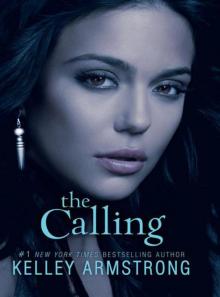 The Calling
The Calling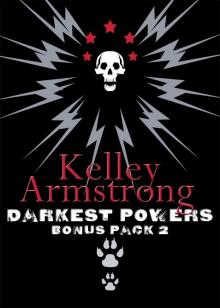 Darkest Powers Bonus Pack
Darkest Powers Bonus Pack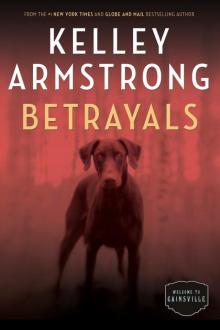 Betrayals
Betrayals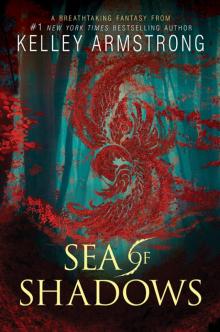 Sea of Shadows
Sea of Shadows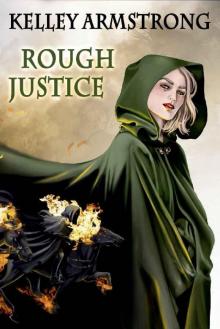 Rough Justice
Rough Justice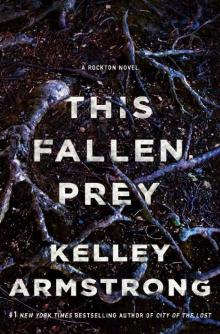 This Fallen Prey
This Fallen Prey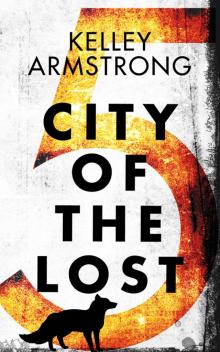 City of the Lost: Part Five
City of the Lost: Part Five Perfect Victim
Perfect Victim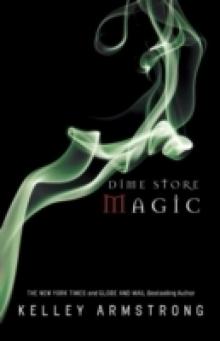 Dime Store Magic
Dime Store Magic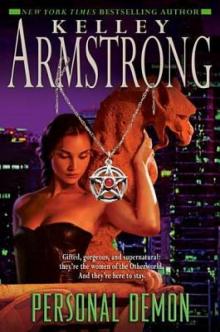 Personal Demon
Personal Demon Haunted
Haunted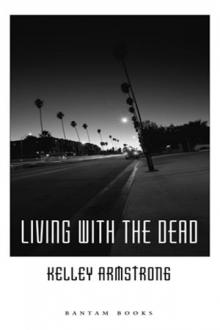 Living With the Dead
Living With the Dead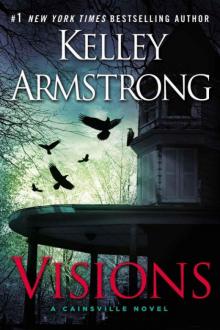 Visions
Visions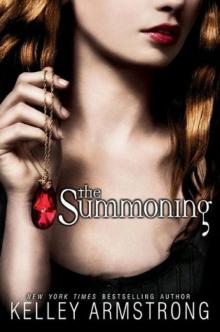 The Summoning
The Summoning Broken
Broken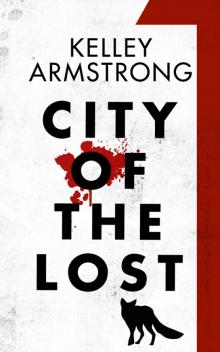 City of the Lost: Part One
City of the Lost: Part One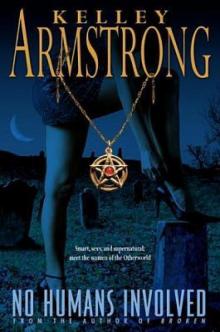 No Humans Involved
No Humans Involved The Awakening
The Awakening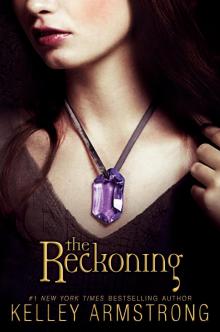 The Reckoning
The Reckoning The Gathering
The Gathering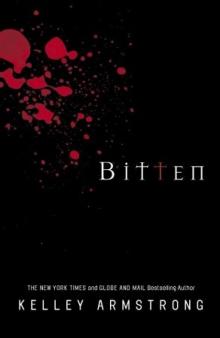 Bitten
Bitten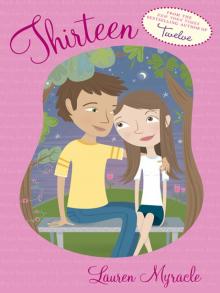 Thirteen
Thirteen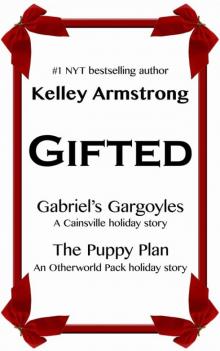 Gifted
Gifted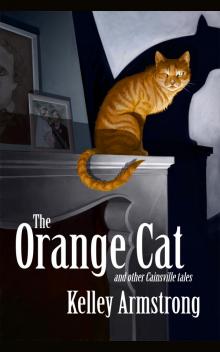 The Orange Cat and Other Cainsville Tales
The Orange Cat and Other Cainsville Tales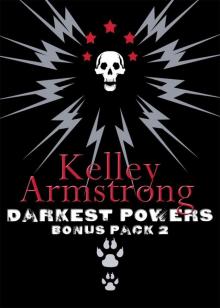 Darkest Powers Bonus Pack 2
Darkest Powers Bonus Pack 2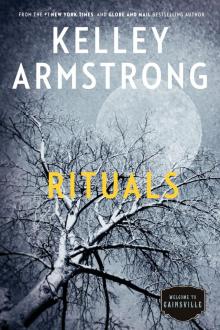 Rituals
Rituals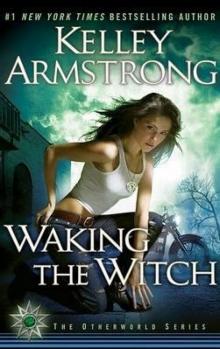 Waking the Witch
Waking the Witch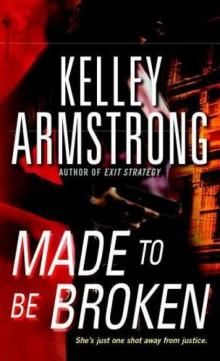 Made to Be Broken
Made to Be Broken Lost Souls
Lost Souls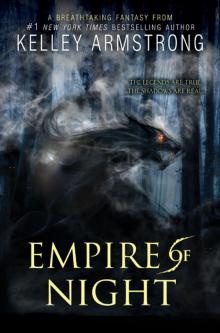 Empire of Night
Empire of Night Wild Justice
Wild Justice Double Play
Double Play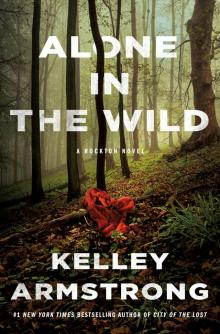 Alone in the Wild
Alone in the Wild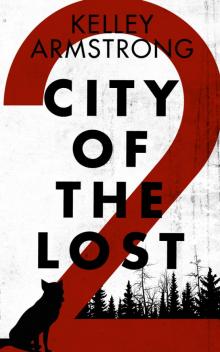 City of the Lost: Part Two
City of the Lost: Part Two A Stranger in Town
A Stranger in Town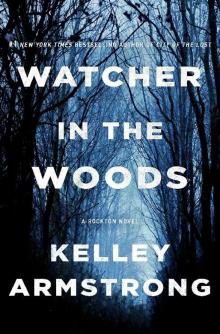 Watcher in the Woods: A Rockton Novel
Watcher in the Woods: A Rockton Novel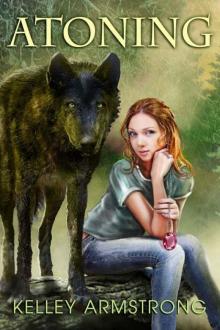 Atoning
Atoning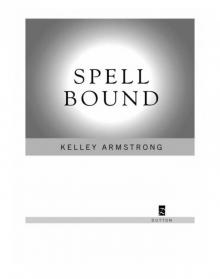 Spellbound
Spellbound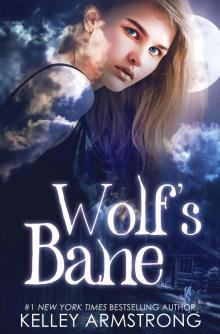 Wolf's Bane
Wolf's Bane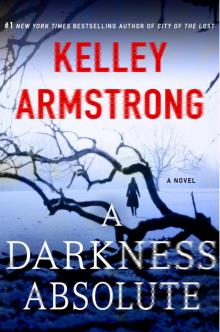 A Darkness Absolute
A Darkness Absolute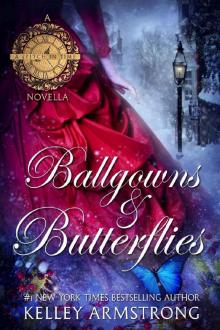 Ballgowns & Butterflies: A Stitch in Time Holiday Novella
Ballgowns & Butterflies: A Stitch in Time Holiday Novella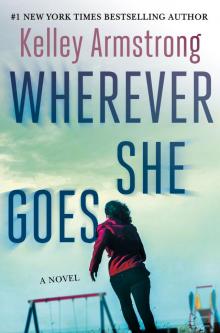 Wherever She Goes
Wherever She Goes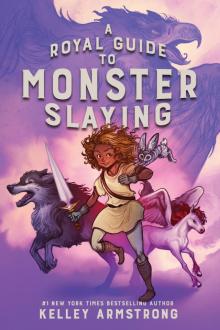 A Royal Guide to Monster Slaying
A Royal Guide to Monster Slaying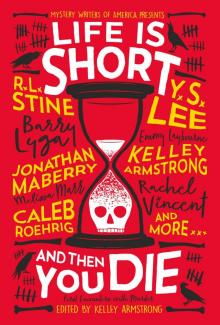 Life Is Short and Then You Die
Life Is Short and Then You Die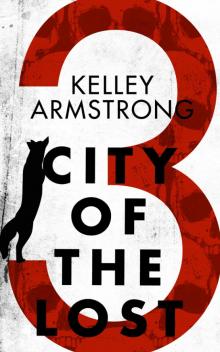 City of the Lost: Part Three
City of the Lost: Part Three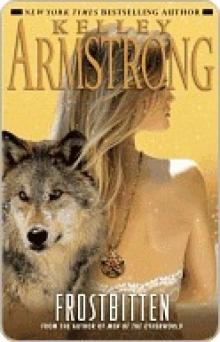 Frostbitten
Frostbitten A Stitch in Time
A Stitch in Time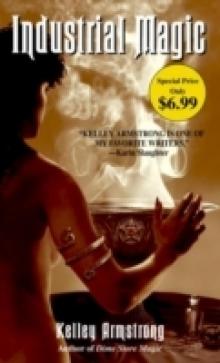 Industrial Magic
Industrial Magic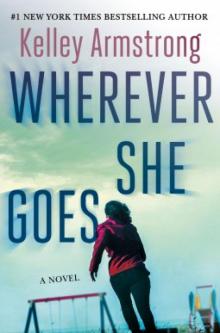 Wherever She Goes (ARC)
Wherever She Goes (ARC)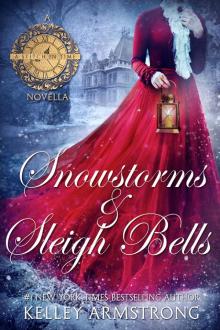 Snowstorms & Sleigh Bells: A Stitch in Time holiday novella
Snowstorms & Sleigh Bells: A Stitch in Time holiday novella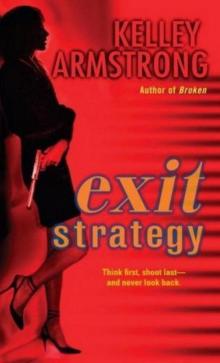 Exit Strategy
Exit Strategy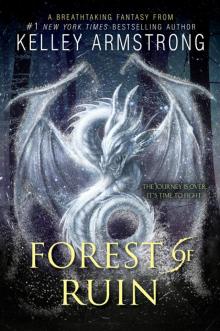 Forest of Ruin
Forest of Ruin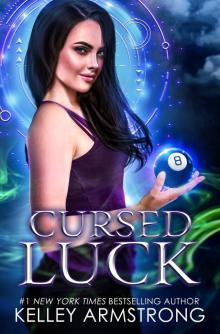 Cursed Luck, Book 1
Cursed Luck, Book 1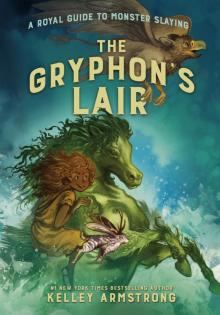 The Gryphon's Lair
The Gryphon's Lair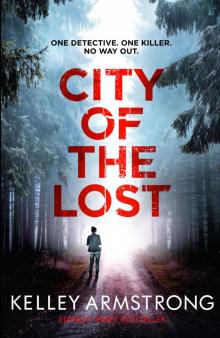 City of the Lost
City of the Lost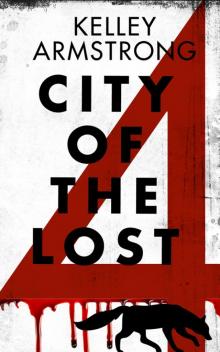 City of the Lost: Part Four
City of the Lost: Part Four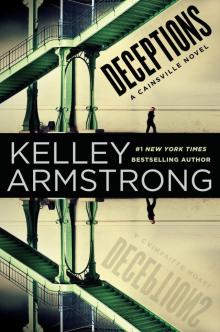 Deceptions
Deceptions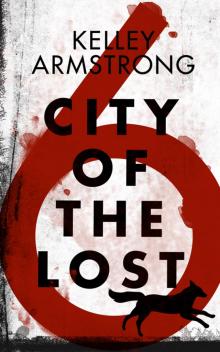 City of the Lost: Part Six
City of the Lost: Part Six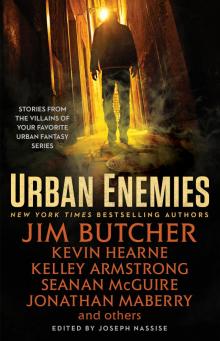 Urban Enemies
Urban Enemies Stolen
Stolen Every Step She Takes
Every Step She Takes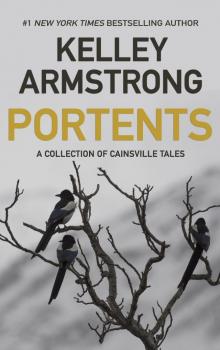 Portents
Portents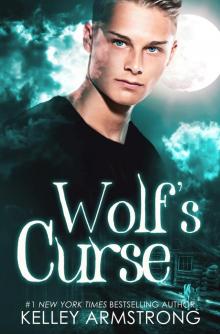 Wolf's Curse
Wolf's Curse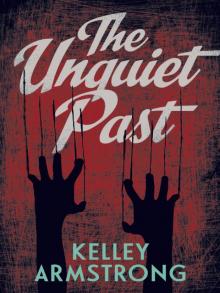 The Unquiet past
The Unquiet past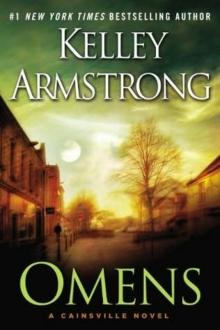 Omens ct-1
Omens ct-1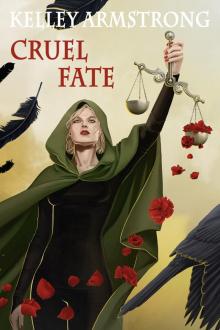 Cruel Fate
Cruel Fate The Calling dr-2
The Calling dr-2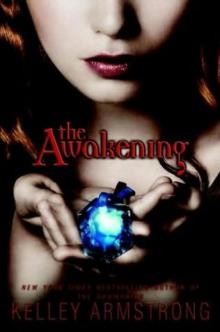 The Awakening dp-2
The Awakening dp-2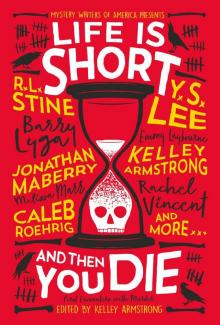 Life Is Short and Then You Die_First Encounters With Murder From Mystery Writers of America
Life Is Short and Then You Die_First Encounters With Murder From Mystery Writers of America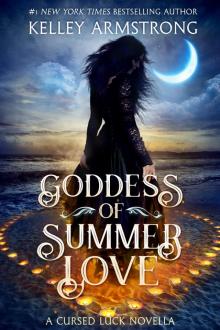 Goddess of Summer Love: a Cursed Luck novella
Goddess of Summer Love: a Cursed Luck novella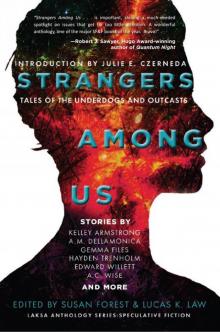 Strangers Among Us
Strangers Among Us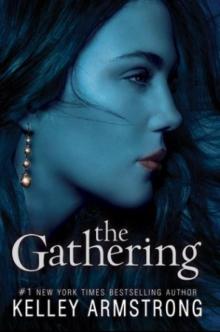 The Gathering dr-1
The Gathering dr-1 The Rising dr-3
The Rising dr-3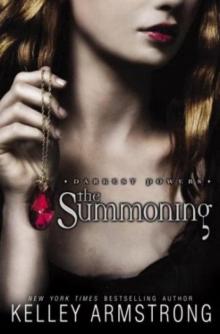 The Summoning dp-1
The Summoning dp-1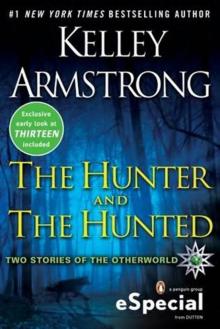 The Hunter And The Hunted
The Hunter And The Hunted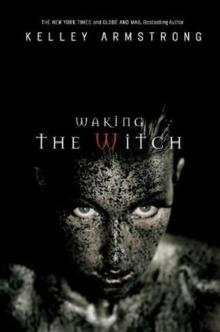 Waking the Witch woto-11
Waking the Witch woto-11